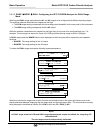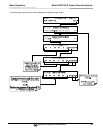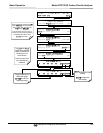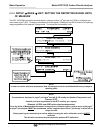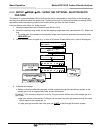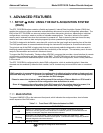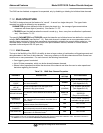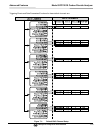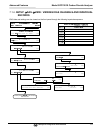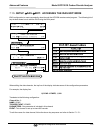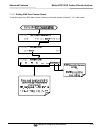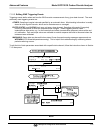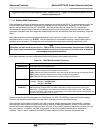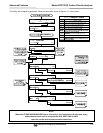
Advanced Features Model GFC7001E Carbon Dioxide Analyzer
Teledyne Analytical Instruments 109
7.1.3. DEFAULT IDAS CHANNELS
A set of default Data Channels has been included in the analyzer’s software for logging CO concentration and
certain predictive diagnostic data. These default channels include but are not limited to:
CONC: Samples CO concentration at one minute intervals and stores an average every hour with a time
and date stamp. Readings during calibration and calibration hold off are not included in the data.
By default, the last 800 hourly averages are stored.
PNUMTC: Collects sample flow and sample pressure data at five-minute intervals and stores an average
once a day with a time and date stamp. This data is useful for monitoring the condition of the pump and
critical flow orifice (sample flow) and the sample filter (clogging indicated by a drop in sample pressure)
over time to predict when maintenance will be required.
The last 360 daily averages (about 1 year) are stored.
CALDAT: Logs new slope and offset of CO measurements every time a zero or span calibration is
performed and the result changes the value of the slope (triggering event: SLPCHG). The CO stability
data to evaluate if the calibration value was stable are also stored.
This data channel will store data from the last 200 calibrations and can be used to document analyzer
calibration and is useful in the detection of the in slope and offset (instrument response) when
performing predictive diagnostics as part of a regular maintenance schedule.
The CALDAT channel collects data based on events (e.g. a calibration operation) rather than a timed
interval and therefore does not represent any specific length of time. As with all data channels, a
date and time stamp is recorded for every logged data point.
These default Data Channels can be used as they are, or they can be customized from the front panel to fit a
specific application. They can also be deleted to make room for custom user-programmed Data Channels.
Appendix A-5 lists the firmware-specific iDAS configuration in plain-text format. This text file can either be
loaded into APICOM and then modified and uploaded to the instrument or can be copied and pasted into a
terminal program to be sent to the analyzer.
NOTE
Sending an iDAS configuration to the analyzer through its COMM ports will replace the existing
configuration and will delete all stored data. Back up any existing data and the iDAS configuration
before uploading new settings.



